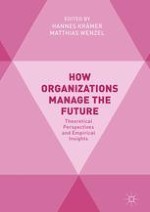2018 | OriginalPaper | Chapter
8. What Scenarios Are You Missing? Poststructuralism for Deconstructing and Reconstructing Organizational Futures
Authors : Ricarda Scheele, Norman M. Kearney, Jude H. Kurniawan, Vanessa J. Schweizer
Published in: How Organizations Manage the Future
Publisher: Springer International Publishing
Activate our intelligent search to find suitable subject content or patents.
Select sections of text to find matching patents with Artificial Intelligence. powered by
Select sections of text to find additional relevant content using AI-assisted search. powered by
